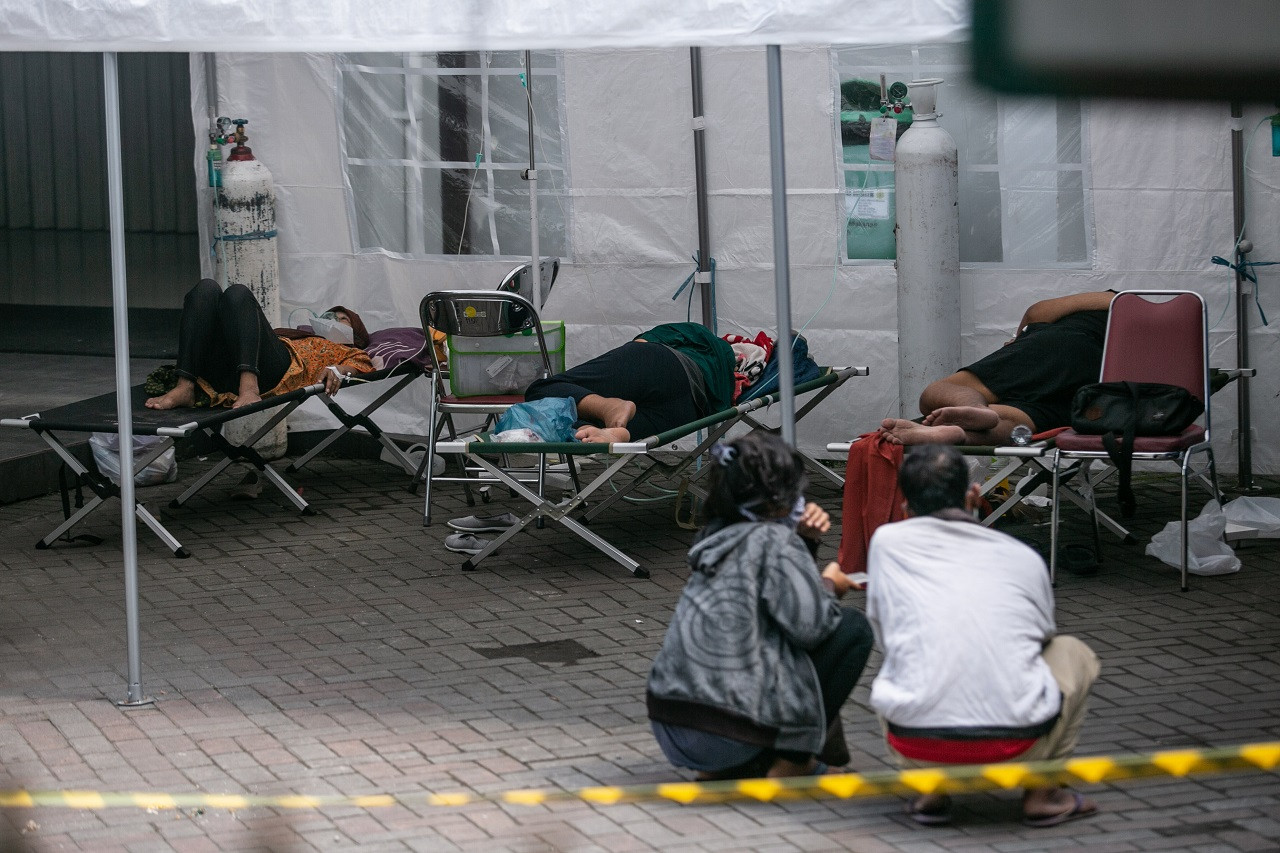Popular Reads
Top Results
Can't find what you're looking for?
View all search resultsPopular Reads
Top Results
Can't find what you're looking for?
View all search resultsIndonesia reports record COVID-19 cases on Tuesday, orders oxygen supplies
The country is fighting a devastating new virus outbreak fueled by the highly contagious delta variant that has stretched parts of the health system to breaking point.
Change text size
Gift Premium Articles
to Anyone
 Several patients sleep under an emergency tent at Dr. Sardjito General Hospital in Sleman, Yogyakarta on July 4, 2021. Yogyakarta health authorities confirm on the death of 63 COVID-19 patients treated at the hospital between July 3 and 4 due to depleting medical oxygen supply. (Antara/Hendra Nurdiyansyah)
Several patients sleep under an emergency tent at Dr. Sardjito General Hospital in Sleman, Yogyakarta on July 4, 2021. Yogyakarta health authorities confirm on the death of 63 COVID-19 patients treated at the hospital between July 3 and 4 due to depleting medical oxygen supply. (Antara/Hendra Nurdiyansyah)
I
ndonesia reported on Tuesday a record increase of coronavirus infections, as authorities unveiled plans to order liquid oxygen and tens of thousands of concentrators from abroad to treat patients suffering from the respiratory disease.
The country is fighting a devastating new virus outbreak fueled by the highly contagious delta variant that has stretched parts of the health system to breaking point.
The COVID-19 task force announced 47,899 new cases, the sixth daily record in the past 10 days and up about sevenfold from a month ago, with total infections now topping 2.6 million.
It also reported 864 new deaths on Tuesday, taking total fatalities to over 68,000.
Read also: Indonesia imports oxygen as COVID-19 explosion batters hospitals
With hospitals overflowing in parts of densely populated Java, demand for medical oxygen had outstripped production capacity of just over 1,700 tonnes a day, said Health Minister Budi Gunadai Sadikin.
"What happened was a significant increase. What used to be 400 tonnes, now it's 2,000 tonnes," Budi told a House of Representatives hearing.
He said nine provinces had reported hospital bed occupancy above 80 percent, including Jakarta and West Java. The government was in talks with industry about letting authorities have their excess capacity, as well as looking at imports, Budi said.
With many Indonesians unable to get hospital beds, independent data group Lapor COVID-19 says 453 people have died from the coronavirus in self-isolation since June.
Coordinating Maritime Affairs and Investement Minister Luhut Binsar Pandjaitan said President Joko "Jokowi" Widodo had ordered ministers to take action over the oxygen situation,
Read also: Health minister blames uneven factory distribution for oxygen shortage
Luhut told CNBC Indonesia the country was importing 40,000 tonnes of liquid oxygen and more than 40,000 concentrators from the United States, China and Japan to allow people with milder cases to treat themselves at home. "When they are healed, they can be returned and shared with others," said Luhut.
"The President has ordered us to look into the worst case scenario," he added.









